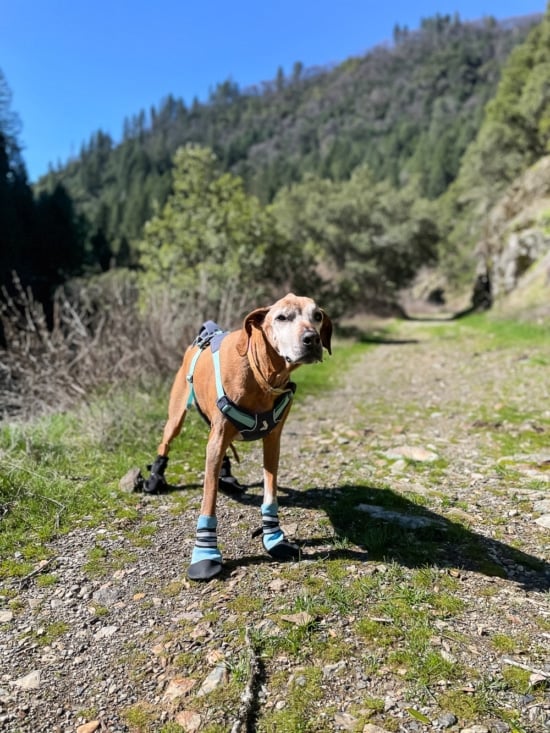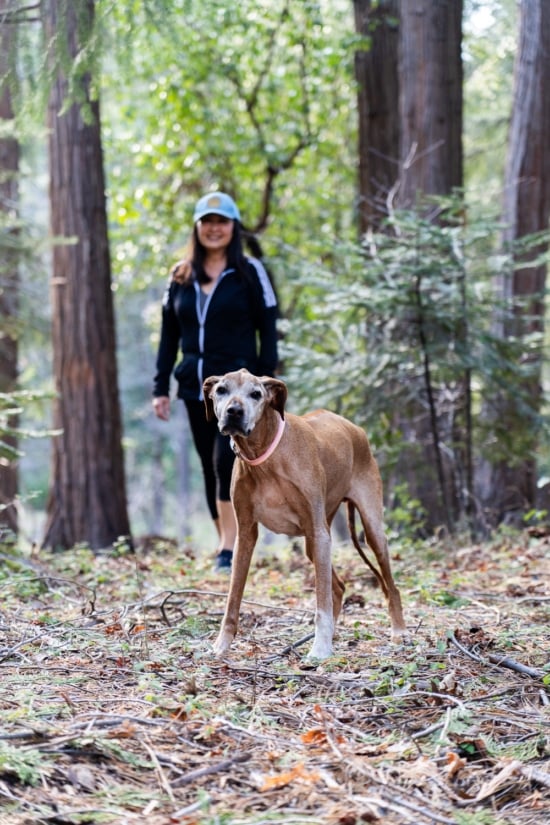Flea and Tick Prevention for Lexi’s Summer Adventures

Hi Friends and doggie lovers. We’re ready for summer and excited to partner with Merck Animal Health! We enjoy sharing stories of Lexi, and how much we love and spoil her. Now that the weather is warm and fantastic, we’re off on more road trips, hiking, and outdoor adventures with Lexi.

Since Sierra’s passing in 2020, we’re always itching to explore new trails, rivers and frontiers. Lexi especially loves sharing the same enthusiasm for adventures that her older Boxer sibling Sierra had. And every time we’re exploring, Sierra’s spirit is always with us. These adventures are our heartfelt way of honoring Sierra. But heading to the great outdoors also comes with some serious planning and responsibilities.

Tips: Preparation for Flea and Tick Season
Summer is the height of flea and tick season. Traveling and hiking with Lexi always entails some preparation to protect her from fleas and ticks, especially when we’re venturing into wooded areas or places Lexi is surrounded by brush. Even when we’re staying at dog-friendly accommodations, it also means facing the potential risk of encountering fleas and ticks. Here are some of our steps to protect Lexi during our adventuring life:
- Staying up to date on Lexi’s medication. We have alerts to remind us when Lexi is due for her flea and tick medication. It’s important to keep her protected before any invaders can get to her. For instance, one option is BRAVECTO® (fluralaner) Chews. They are convenient to have ready when flea and tick season is in full force. Chews are always an easy treatment and they’re fast-acting and safe. With just one chew, they provide up to 12 weeks of flea and tick protection. And best of all, one chew lasts nearly 3X longer than one dose of monthly products. For full product and safety information, visit us.bravecto.com.
- We always have our dog backpack or dog travel bag packed and ready with first aid essentials, backup food, dog paw protectors (especially in hot summer months and in snow/ice conditions), and of course, medications. Be on top of all these dog essentials to keep them healthy and safe.
- Routinely check for fleas and ticks. We don’t assume that just because we don’t “see” the fleas or ticks, they’re not on our dog. We are constantly checking them for fleas and ticks because those little critters dig deep into our pup’s coats and it’s so hard to see them. Check under their arms, ears, neck, belly, and any warm spots. Ticks especially love hiding in warm spots like the dog’s armpits and belly areas.
- Have a regular grooming schedule, meaning baths! Yup, sometimes they don’t like it but it certainly keeps them clean and this regular hygiene is like a tune-up. We are lucky, Lexi doesn’t mind baths, as long as the water is warm.
- Speaking of dog tune-ups, we stay on top of regular visits to the vet not just for medication but for overall dog health. Yeah, it’s an additional expense, but the benefits outweigh the costs of having a surprise health issue or discovering something too late to address easily.
What other tips do you have for your pups? We love hearing how other pup parents care for their fur babies.
This is a sponsored story with Merck Animal Health and all our opinions are our own.
*BRAVECTO (fluralaner) Chews for Dogs kills fleas, prevents flea infestations, and kills ticks (black-legged tick, American dog tick, brown dog tick, and Asian longhorned tick) for 12 weeks. BRAVECTO Chews also kills lone star ticks for 8 weeks.
BRAVECTO (fluralaner) Chews for Dogs: The most commonly reported adverse reactions include vomiting, lethargy, diarrhea, anorexia and pruritus. In some cases, adverse events have been reported following use in breeding females. BRAVECTO Chews has not been shown to be effective for 12-weeks’ duration in puppies less than 6 months of age. BRAVECTO Chews is not effective against lone star ticks beyond 8 weeks of dosing. Fluralaner is a member of the isoxazoline class. This class has been associated with neurologic adverse reactions including tremors, ataxia, and seizures. Seizures have been reported in dogs receiving isoxazoline class drugs, even in dogs without a history of seizures. Use with caution in dogs with a history of seizures or neurologic disorders.






